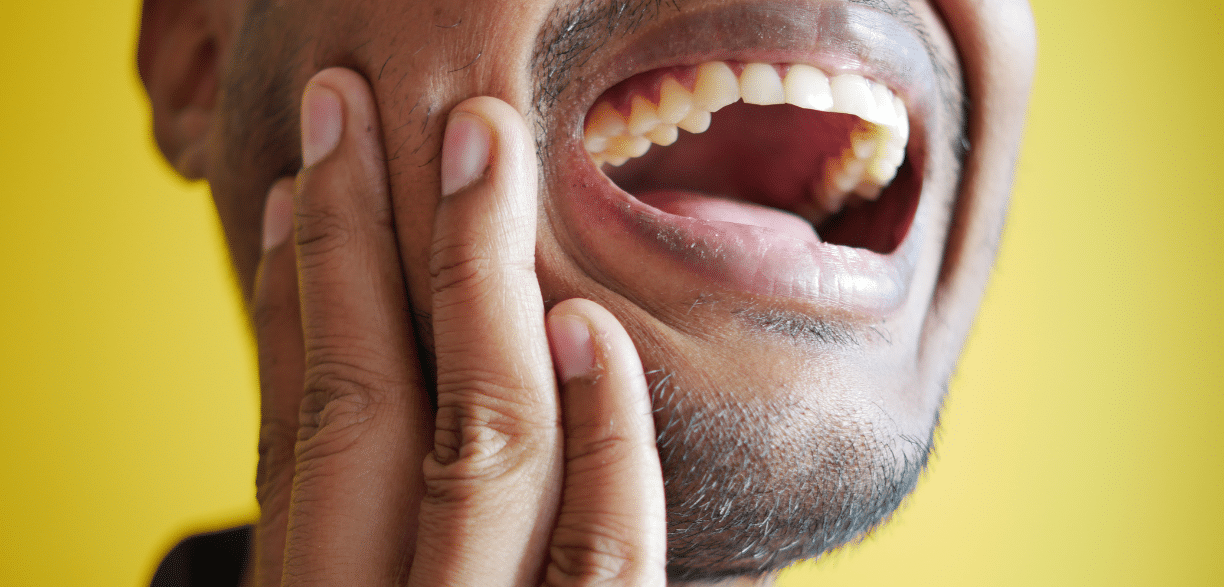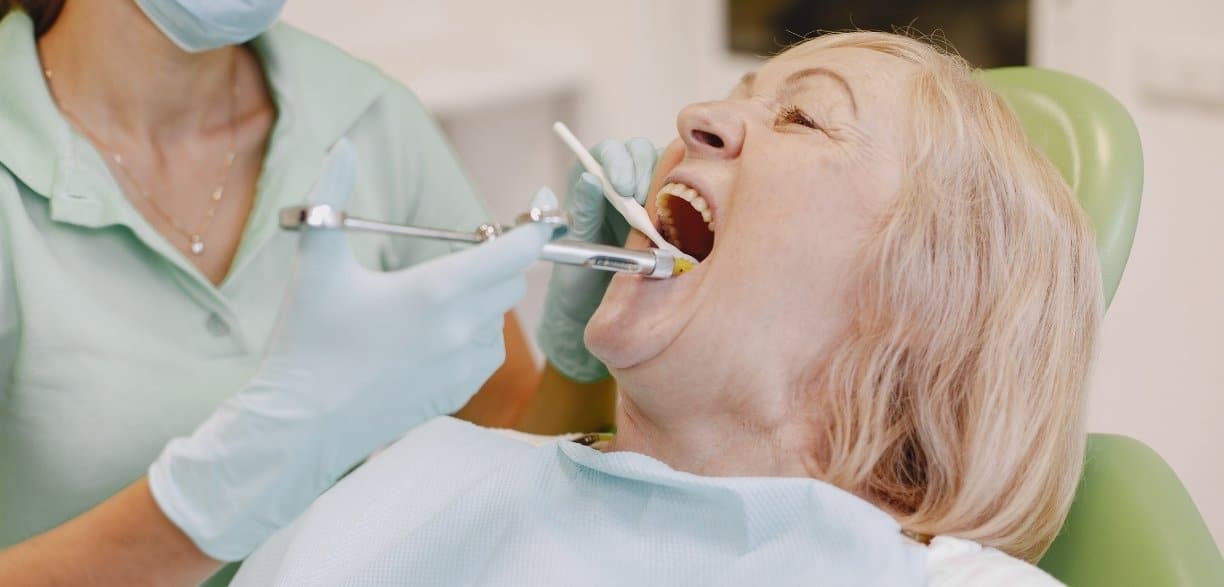
Dental emergencies can happen unexpectedly and cause significant discomfort. Understanding the most common dental emergencies and taking preventive measures can help protect your oral health and ensure timely intervention when emergencies arise. In this blog, we will discuss the most common dental emergencies, their causes, and practical tips for prevention, enabling you to maintain a healthy smile and be prepared for any unexpected dental situations.
I. Toothache
A. Causes of Toothaches
B. Prevention Tips for Toothaches
Toothaches are one of the most common dental emergencies, often caused by tooth decay, gum disease, or dental infections. Maintaining good oral hygiene through regular brushing, flossing, and dental check-ups can help prevent toothaches. Avoiding excessive consumption of sugary foods and drinks, as well as using fluoride toothpaste, are also essential preventive measures. If you experience a toothache, rinse your mouth with warm saltwater and use dental floss to remove any food debris. Seek immediate dental care if the pain persists.
II. Dental Trauma
A. Types of Dental Trauma
B. Preventing Dental Trauma
Dental trauma can occur due to accidents, falls, or sports injuries. Common types of dental trauma include knocked-out teeth, fractured teeth, or dislodged teeth. To prevent dental trauma, it’s essential to wear protective mouthguards during contact sports. Additionally, avoiding chewing on complex objects, such as ice or pens, can help minimize the risk of dental injuries. In case of dental trauma, handle the tooth carefully by the crown, not the root, and try to reposition it gently. Seek immediate dental care to increase the chances of successful re-implantation.
III. Broken or Chipped Teeth
A. Causes of Broken or Chipped Teeth
B. Tips for Preventing Broken or Chipped Teeth
Broken or chipped teeth can result from accidents, biting down on hard objects, or tooth decay weakening the tooth structure. To prevent such emergencies, avoid using your teeth as tools to open packages or bottles. Maintain regular dental check-ups to detect and treat any underlying dental issues that may weaken the teeth. In case of a broken or chipped tooth, rinse your mouth with warm water and apply a cold compress to reduce swelling. Seek immediate dental attention for proper evaluation and treatment.
IV. Lost Filling or Crown
A. Causes of Lost Fillings or Crowns
B. Preventive Measures for Lost Fillings or Crowns
Lost fillings or crowns can occur due to decay, underlying tooth damage, or simply wear and tear over time. Regular dental visits are crucial to identify and address any issues with fillings or crowns before they become emergencies. Avoid biting down on hard or sticky foods that can dislodge fillings or crowns. If a filling or crown comes loose, try to clean and dry the area, and use temporary dental cement or dental wax to cover the tooth until you can see your dentist.
V. Abscessed Tooth
A. Causes of Tooth Abscess
B. Preventing Tooth Abscess
A tooth abscess is a painful condition caused by a bacterial infection in the tooth or gum. Good oral hygiene practices, including regular brushing, flossing, and rinsing with an antiseptic mouthwash, can help prevent tooth abscesses. Avoiding sugary foods and drinks and seeking prompt treatment for tooth decay or gum disease are vital preventive measures. If you experience a severe toothache, swelling, or a persistent bad taste in your mouth, it could indicate an abscessed tooth. Seek immediate dental care to prevent the infection from spreading.
VI. Prevention Tips for Dental Emergencies
A. Maintain Good Oral Hygiene
B. Wear Protective Mouthguards
C. Avoid Harmful Habits
D. Regular Dental Check-ups
Preventing dental emergencies requires consistent oral hygiene practices, including brushing twice a day, flossing daily, and using fluoride toothpaste. Wearing protective mouthguards during sports activities or recreational pursuits can help safeguard your teeth from trauma. Avoiding harmful habits such as chewing ice, biting nails, or using teeth as tools is essential. Regular dental check-ups and cleanings enable early detection of any dental issues and prompt intervention to prevent emergencies.
VII. Gum Emergencies
A. Gum Inflammation and Swelling
B. Gum Injury or Laceration
C. Preventive Measures for Gum Emergencies
Gum emergencies can include gum inflammation, swelling, or injuries. Maintaining proper oral hygiene by regularly brushing and flossing can help prevent gum infections and reduce the risk of gum emergencies. Avoiding aggressive brushing or using a toothbrush with stiff bristles can protect your gums from irritation. If you notice gum inflammation or swelling, rinse your mouth with warm saltwater and gently massage the area. For gum injuries or lacerations, clean the area with warm water and apply gentle pressure with a clean cloth to control bleeding. Seek immediate dental care for severe gum emergencies.
VIII. Orthodontic Emergencies
A. Broken or Poking Wires
B. Loose Brackets or Bands
C. Preventing Orthodontic Emergencies
Orthodontic emergencies can occur when wearing braces or other orthodontic appliances. Broken or poking wires can cause discomfort or irritation to the mouth. In case of a broken wire, use a pencil eraser or orthodontic wax to push the wire into a more comfortable position. Loose brackets or bands should be addressed by contacting your orthodontist for an appointment. To prevent orthodontic emergencies, follow your orthodontist’s instructions regarding diet, oral hygiene, and avoiding habits like biting on hard or sticky foods.
IX. Tips for Handling Dental Emergencies
A. Stay Calm and Assess the Situation
B. Contact Your Dentist or Emergency Dental Services
C. Preserve Avulsed Teeth Properly
D. Manage Pain and Discomfort
During a dental emergency, it’s crucial to stay calm and assess the situation to determine the severity and necessary actions. Contact your dentist or emergency dental services immediately to seek professional guidance and schedule an emergency appointment. If a tooth has been knocked out, handle it by the crown (not the root), rinse it gently with water if dirty, and try to place it back into the socket if possible. If re-implantation is not possible, store the tooth in a container with milk or saliva to keep it moist. Over-the-counter pain relievers and cold compresses can help manage pain and reduce swelling before receiving dental care.
Preventing dental emergencies requires a combination of good oral hygiene practices, protective measures, and regular dental check-ups. By taking proactive steps and following preventive tips, you can significantly reduce the risk of experiencing common dental emergencies such as toothaches, dental trauma, broken teeth, lost fillings or crowns, abscessed teeth, gum emergencies, and orthodontic emergencies. Remember to stay calm, contact your dentist promptly, and handle dental emergencies appropriately. Prioritizing your oral health and being prepared will ensure the well-being of your teeth and gums, allowing you to maintain a healthy and confident smile.



